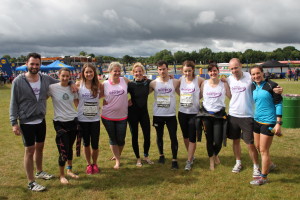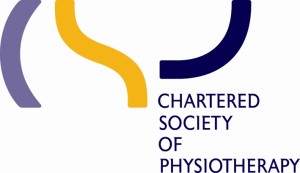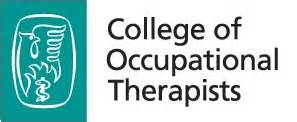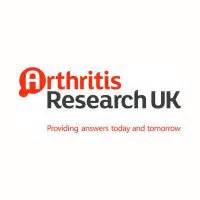Trauma and Orthopaedic Physiotherapy and Occupational Therapy
On this page:
Orthopaedic physiotherapy and occupational therapy specialises in the treatment of patients who are admitted to hospital due to a traumatic accident / incident or those undergoing planned surgery (elective).
Who Can Benefit?
Trauma patients who have sustained lower limb fractures, upper limb fractures, spinal fractures and many other musculoskeletal and soft tissue conditions.
Elective patients undergoing procedures such as knee replacement, hip replacement, knee arthroscopy, and back surgery.
Contact details
Inpatient physiotherapy or occupational therapy:
Tel: 0208 725 0985 (answerphone available)
Fax: 0208 725 0984
Email: traumaptot@stgeorges.nhs.uk
Twitter: @StGTraumaPTOT
Outpatient physiotherapy and appointment enquiries:
0208 725 0007
Opening hours
08.30-16.30 (seven days a week)
Key staff
The therapy team is made up of a Therapy Consultant, Specialised Occupational Therapists and Physiotherapists, Rotational Therapists and Therapy Technicians.
Physiotherapy
What does an assessment involve?
The initial assessment will normally take place on one of the wards and will usually last between 15-30 minutes. The exact nature of your assessment will depend upon your symptoms and can include any/all of the following areas:
- Joint range of movement
- Muscle strength
- Muscle tightness
- Altered sensation
- Current mobility with or without walking aids
- Review of activities of daily living
- Listening to your breathing/chest assessment
You may also be asked about your home environment and any hobbies or employment to help us plan your discharge from hospital and anticipate any ongoing rehabilitation needs.
What will happen after the assessment?
The orthopaedic physiotherapist will discuss their findings with you in relation to your condition and how these impact on your quality of life. Treatment plans and appropriate goals will then be agreed with you.
What will treatment include?
Depending on your individual needs, treatment can include:
- Range of movement exercises
- Strengthening exercises
- Transfer practice
- Mobility practice (with an appropriate walking aid if required)
- Progression of mobility (if using a walking aid) including gait re-education
Will I need a follow-up?
Yes, usually you will be reviewed again whilst on the ward. Depending on your progress, you may need a follow-up after you have been discharged. This will be discussed/agreed with you and could include:
- Inpatient rehabilitation
- Home based (community) rehabilitation
- Outpatient physiotherapy
How can I help myself?
You can help yourself by following the advice/instructions given by the consultant and physiotherapist. You may be given an exercise instruction leaflet which gives details of the number and type of exercised and also how often they should be undertaken. These instructions should be followed carefully.
Occupational Therapy
What is occupational therapy?
Occupational therapy (OT) staff assist people of all ages with a range of physical, mental or social needs as a result of accident, illness or ageing, to do the things they want to do. These could be daily activities that many of us take for granted, from managing our self-care, to family roles and work and social activities.
After a traumatic injury an occupational therapist plays an important role in helping people return to independence. This includes assisting with planning your discharge from hospital and taking into account your lifestyle, your home environment and your continuing therapy and care needs. In the trauma and orthopaedic department the OT staff specialise in understanding the implications of surgery or injury and the needs of people who have orthopaedic injuries and how this will affect you when you return home.
What will your Occupational Therapist do whilst you’re in hospital?
Your OT will talk with you about your daily living, leisure and work activities and how you might do these things following your injury/ surgery.
They may also ask you about your home, for example, the layout of the property, the number of steps or the location of your bathroom. This will help to plan how you will get around your home after discharge from hospital. Sometimes a family member can help by taking measurements or digital photos, or your OT may be able to visit your home to advise. Sometimes equipment may be recommended to increase your independence or make activities easier.
Occupational Therapy may include:
- Practising activities that you will need to do at home and learning strategies to make this easier
- Advice about daily living equipment that may be useful
- Advice about accessing other services (e.g. Social Services) for major home adaptations
- Advice about wheelchairs and prescription of these if necessary
- Fitting custom made splints to help with healing tissues or promote function
- Advice about community resources- therapy and supports in your area
Leaflets
Videos from NHS Choices
If you would like more information you may find these video clips useful –
Recovering from injury
www.nhs.uk/video/Pages/recoveringfrominjury.aspx
Hip replacement
www.nhs.uk/video/Pages/Hipreplacement.aspx
Hip operation animation
www.nhs.uk/video/Pages/Animationhipoperation.aspx
Hip replacement – patient story
www.nhs.uk/video/Pages/Hipreplacementrealstory.aspx
Advice after a hip operation
www.nhs.uk/video/Pages/postophip.aspx
Knee replacement animation
www.nhs.uk/video/Pages/Kneereplacementanimation.aspx
Knee replacement – patient story
www.nhs.uk/video/Pages/Kneereplacementrealstory.aspx
Arthroscopy (key hole surgery to a joint)
www.nhs.uk/video/Pages/Arthroscopy.aspx
Advice after a knee operation
www.nhs.uk/video/Pages/postopknee.aspx
Surgery to the lumbar spine
www.nhs.uk/video/Pages/Lumbarsurgery.aspx
Lower limb amputation





